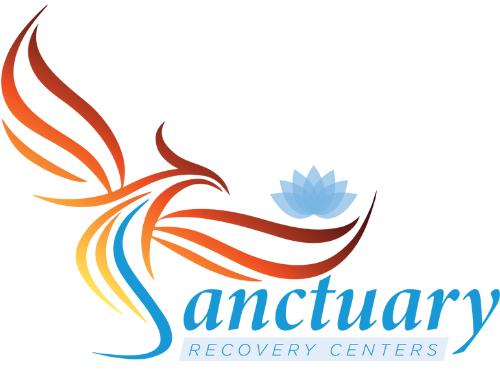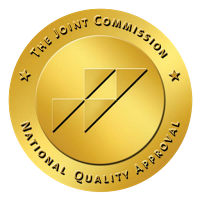Get Help With Your Addiction

10 Signs Your Kid Is Using Drugs
Sep 20, 2023
Concerned about your child’s behavior? Discover the 10 telltale signs your kid might be using drugs. Early detection can make all the difference. Learn more in our comprehensive guide.
Every parent’s worst fear is the safety and well-being of their children. In today’s complex world, substance abuse is an increasing concern for many families. Recognizing the signs early on can pave the way for intervention, support, and understanding. This article delves into the 10 most common signs that your child might be experimenting with or using drugs. Armed with this knowledge, you can take proactive steps to ensure your child’s safety and well-being.
Physical Changes in Appearance
You might notice a few physical changes in your appearance when you start taking medication. Similarly, when someone is using drugs, there can be noticeable changes in their physical appearance. These changes can serve as warning signs for parents to be vigilant about potential substance abuse in their child.
Some common physical changes that may indicate drug use include bloodshot eyes, dilated or constricted pupils, sudden weight loss or gain, changes in sleep patterns, and poor personal hygiene. These changes can be attributed to the effects of drugs on the body and mind.
It’s important for parents to be aware of these signs and to approach the situation with empathy and understanding. If you notice any of these physical changes in your child, it may be time to have an open and honest conversation about drugs and substance abuse.
Sudden Changes in Behavior
If you notice sudden changes in your child’s behavior, it could be a sign that something is going on.
Unexplained mood swings, a decline in academic performance, and secretive or withdrawn behavior are all red flags to watch out for.
These changes may indicate that your child is struggling with something, and it’s important to address the issue with empathy and support.
Unexplained Mood Swings
Experiencing unexplained mood swings can be a sign that something deeper is going on with your kid. It can be challenging to witness your child’s emotional changes without understanding their cause.
However, there are therapy options available to help manage these mood swings and promote healthy emotional well-being in children. Cognitive-behavioral therapy (CBT) and dialectical behavior therapy (DBT) are two effective options that can provide your child with coping mechanisms and strategies to regulate their emotions.
Additionally, open communication with your child is crucial in understanding their emotional changes. Creating a safe and non-judgmental environment will encourage your child to express their feelings. Active listening, empathy, and validation are essential strategies to foster a strong parent-child relationship and promote open communication.
Decline in Academic Performance
Your child’s sudden decline in academic performance may be indicative of underlying issues that need to be addressed. It’s important to consider factors such as academic motivation and classroom behavior when trying to understand the root cause of this decline.
Academic motivation refers to your child’s desire and willingness to engage in learning activities. If their motivation has decreased, it could be a sign of a larger problem. Classroom behavior also plays a significant role in academic performance. If your child is exhibiting disruptive or distracting behavior in class, it may be affecting their ability to focus and learn.
It’s crucial to communicate with your child’s teachers to gain a better understanding of their behavior and motivation levels, and to work together to find appropriate solutions to support their academic success.
Secretive or Withdrawn Behavior
You should be aware that secretive or withdrawn behavior in your child could be a red flag for potential issues that need to be addressed. Trust issues and a breakdown in communication can have detrimental effects on relationships and family dynamics.
When your child becomes secretive or starts withdrawing from family activities, it may indicate that something is amiss. These behaviors can be signs of various issues, including substance abuse or mental health problems.
It’s important to approach your child with empathy and understanding, creating a safe space for open dialogue. Building trust and maintaining open lines of communication are crucial in addressing any potential problems and providing the necessary support for your child’s well-being.
Decline in Academic Performance
Are you noticing a decline in your academic performance?
It’s important to address this issue as it could be a sign of various underlying factors. Poor grades, lack of motivation, and difficulty focusing in school may indicate a potential struggle with drugs or substance abuse.
It’s crucial to seek support and guidance in order to address these concerns and ensure a brighter future for yourself.
Grades Dropping, Drug Use
Don’t let declining grades be a sign of drug use. It’s important to remember that there could be various reasons for a drop in academic performance.
While drug use is a concern for many parents, it’s essential to approach the situation with empathy and open communication. Drug prevention programs and regular conversations with your children about the dangers of substance abuse can play a crucial role in preventing drug use.
However, it’s equally important to consider other factors that may affect their academic performance, such as stress, mental health issues, or learning difficulties.
Poor School Performance, Drugs?
Is your child’s poor school performance possibly linked to drug use? It’s a difficult question for any parent to ask, but an important one to consider.
Struggling friendships and declining grades can be potential signs of drug abuse. It’s important to remember that poor school performance can have various causes, and drug use is just one possibility. However, if you notice a significant change in your child’s behavior, it may be worth exploring further.
Open communication with your child is key. Talk to them about their struggles and concerns, and consider seeking professional help if needed. Additionally, drug abuse prevention programs can play a crucial role in educating children about the dangers of drugs and providing them with the necessary tools to make healthy choices.
Increased Secrecy and Lying
You need to address the increased secrecy and lying in your child’s behavior, as it may be a sign of drug use. It’s important to approach this topic with empathy and understanding, as drug use can be a complex issue.
Increased isolation and changes in sleep patterns are additional signs to look out for. Your child may start distancing themselves from friends and family, preferring to spend more time alone. They may also exhibit changes in their sleep patterns, either sleeping excessively or experiencing insomnia.
It’s important to have an open and honest conversation with your child about your concerns. Approach them with love and support, and consider seeking professional help if needed. Remember, it’s crucial to approach this issue without judgment and provide a safe space for your child to share their feelings.
Unexplained Financial Issues
Have you noticed any unusual withdrawals or unexplained charges on your bank statement? Financial strain and money problems can be a cause of great concern, and it’s important to address these issues promptly.
Unexplained financial issues can arise due to various reasons, such as identity theft, fraudulent activity, or even poor budgeting habits. It’s essential to carefully review your bank statements and credit card transactions to identify any irregularities.
If you notice any unexplained charges or withdrawals, contact your bank or credit card company immediately to report the issue and inquire about the transactions. They can guide you through the necessary steps to resolve the problem and protect your finances.
Neglecting Personal Hygiene
Make sure to prioritize your personal hygiene and maintain a clean and healthy lifestyle. Poor self-care and a lack of grooming can have negative effects on both your physical and mental well-being.
Neglecting personal hygiene can lead to various health issues such as skin infections, dental problems, and unpleasant body odor. Additionally, it can also affect your self-esteem and confidence, as feeling clean and presentable is an important aspect of our daily lives.
It’s important to understand that taking care of yourself isn’t only about looking good, but also about feeling good. So, make it a priority to establish a regular hygiene routine that includes bathing or showering, brushing your teeth, washing your hands, and maintaining cleanliness in your living space.
Changes in Social Circle
Joining a new club or organization can introduce you to a diverse group of individuals, broadening your social circle and providing opportunities for new friendships. It’s normal for social behavior to change when you meet new people and start forming new connections.
These changes can be exciting and can lead to positive experiences. Making new friends can bring fresh perspectives and enrich your life in many ways. It’s important to be open-minded and accepting of others, as this will help you build strong and meaningful relationships. Remember that everyone is different, and it’s okay to have diverse friendships.
Embrace the opportunity to expand your social circle and cherish the new friends you make along the way.
Loss of Interest in Hobbies or Activities
Are you finding yourself growing bored and disinterested in participating in your favorite hobbies or activities? It’s important to recognize that this could be a sign of underlying mental health issues or the influence of peer pressure.
When our mental health is compromised, it can lead to a loss of interest in activities that once brought us joy. Stress, anxiety, and depression can all contribute to this feeling of disinterest.
Peer Pressure & Hobbies
Additionally, peer pressure can play a role in influencing our interests and hobbies. Sometimes, we may feel pressured to conform to the interests of our peers, causing us to abandon our own passions.
If you’re experiencing a loss of interest in your hobbies or activities, it might be helpful to prioritize your mental health and seek support from loved ones or professionals. Remember, it’s okay to put yourself first and explore new hobbies that bring you joy and fulfillment.
Mood Swings and Irritability
Feeling overwhelmed by mood swings and irritability? It’s important to address these symptoms and seek support from a healthcare professional.
Mood swings and irritability can be challenging to deal with, but understanding the underlying causes and finding effective coping strategies can make a significant difference in managing these symptoms.
Emotional Instability & Sudden Shifts in Mood
Emotional instability and sudden shifts in mood can be caused by various factors, including hormonal changes, stress, or mental health conditions like depression or anxiety.
It’s important not to dismiss these symptoms as just a phase or something that will pass. Seeking professional help can provide you with the support and guidance you need to better understand and manage your emotions.
Finding Drug Paraphernalia or Substances
If you find drug paraphernalia or substances in your home, it’s important to address the situation immediately and seek professional help.
Drug paraphernalia awareness is crucial in recognizing potential signs of drug use. Some common items include pipes, syringes, small spoons, and burnt foil. Additionally, you may come across baggies with residue, pills, or strange odors.
Stay Calm & Approach With Empathy
It’s understandable that discovering these things can be alarming and overwhelming. Remember, staying calm and approaching the situation with empathy is crucial.
Start by having an open and honest conversation with your loved one, expressing your concerns and offering support. Encourage them to seek professional help, such as a counselor or addiction specialist, who can provide guidance and assistance.
If you or a loved one are struggling with drug or alcohol addiction call Sanctuary Recovery Centers in Phoenix, Arizona to get the best treatment plan to start the healing process.

Call 1 (877) 798-TRUE and Start Your Journey to Recovery Today!

Office Address
11645 N Cave Creek Rd
Phoenix, AZ 85020
Other Crisis Contacts
National Suicide Prevention Line:
1-800-273-8255
Call Toll Free
Local Phone Number
(480) 309-9945
Fax
(480) 281-5225
Office Hours
M-F: 8:30 AM – 5:30 PM
Fentanyl Addiction Specialist
Please reach out with questions or concerns regarding you or a loved one in fentanyl addiction.
If this is an emergency, please call 911 or go to your nearest emergency room.






